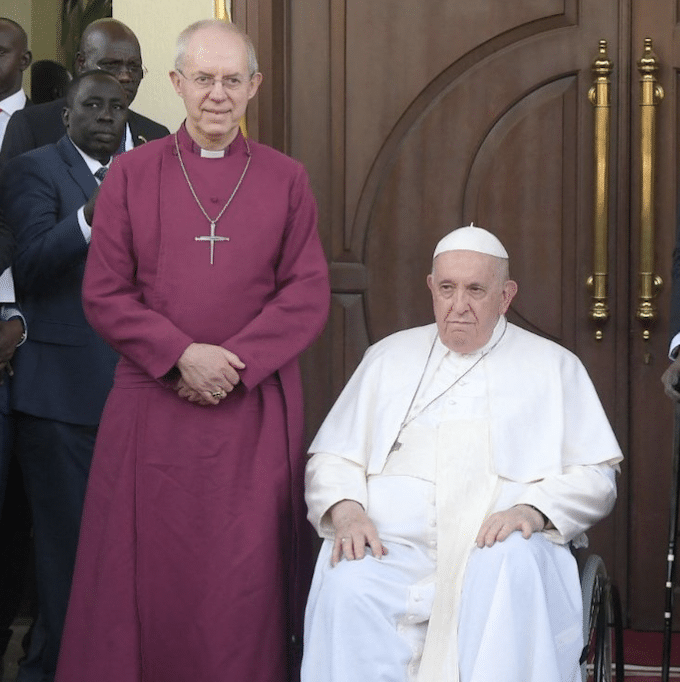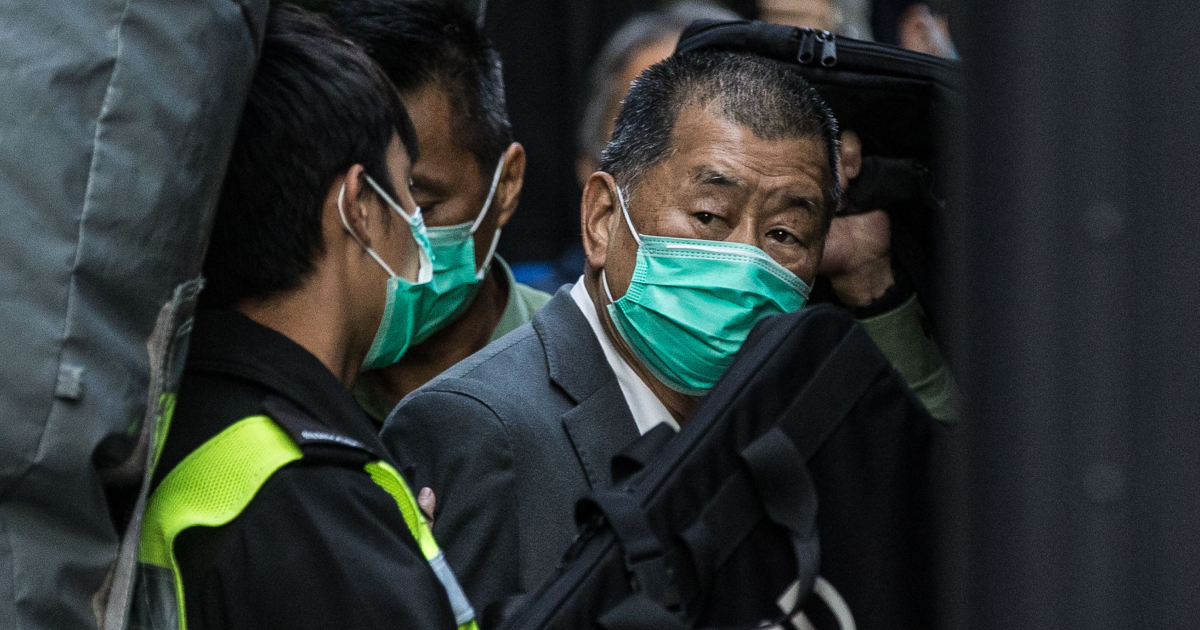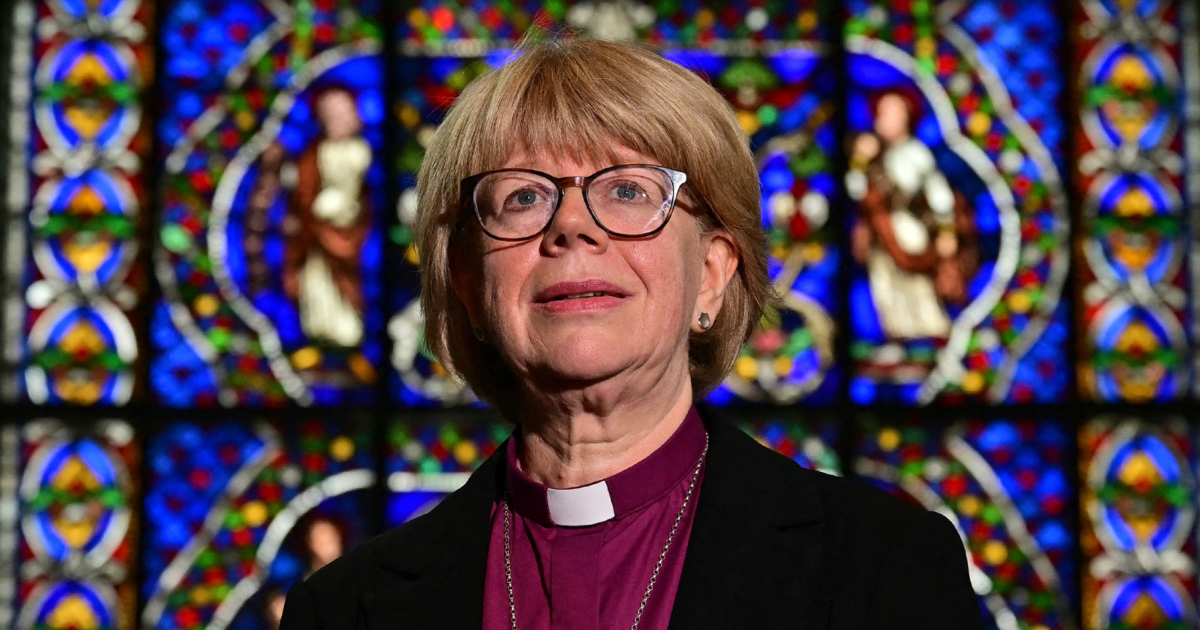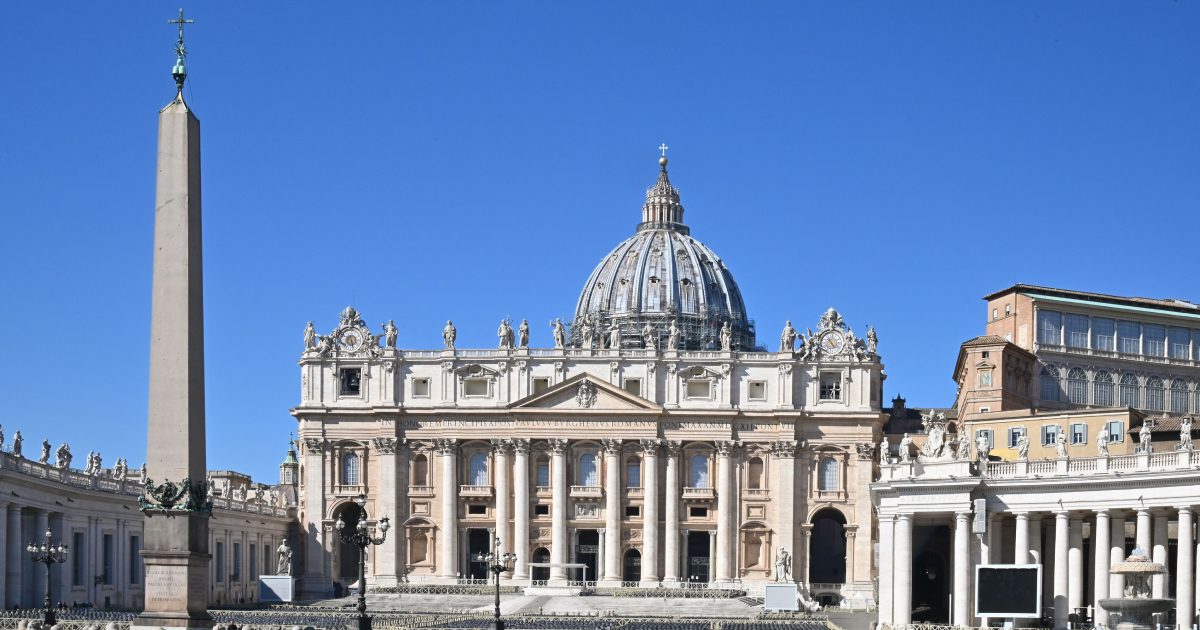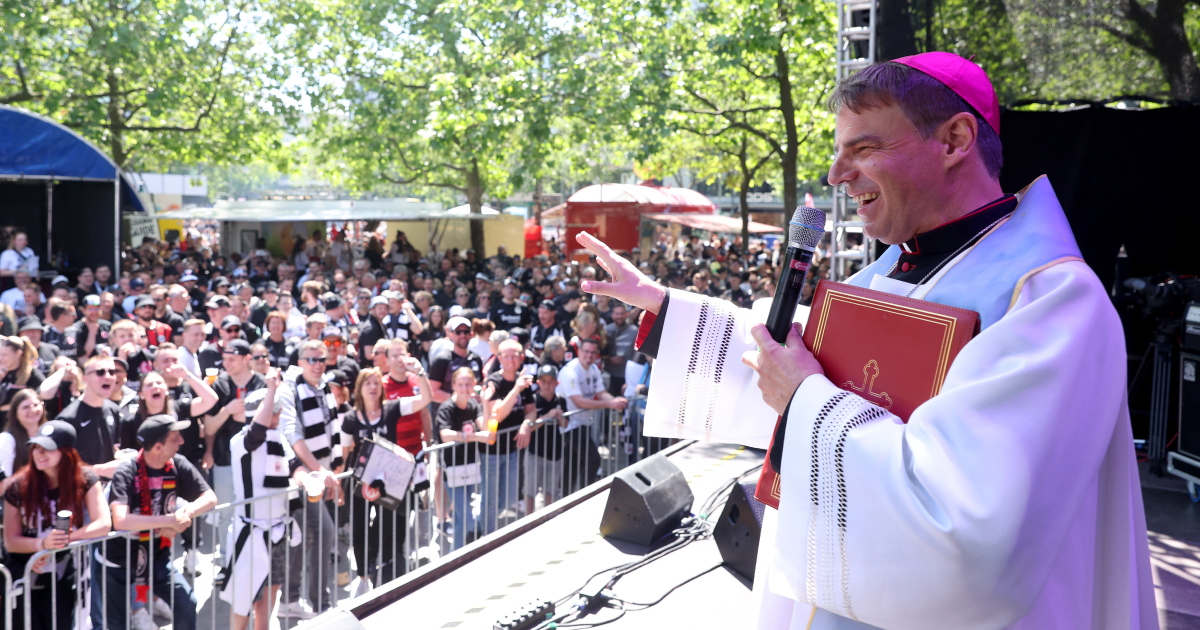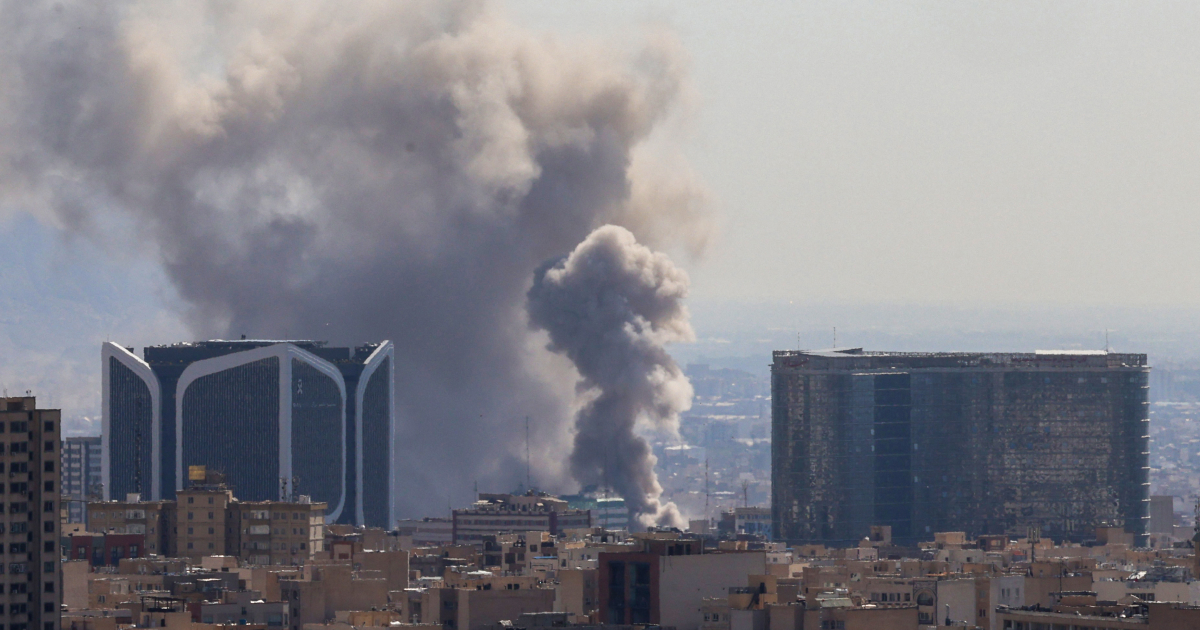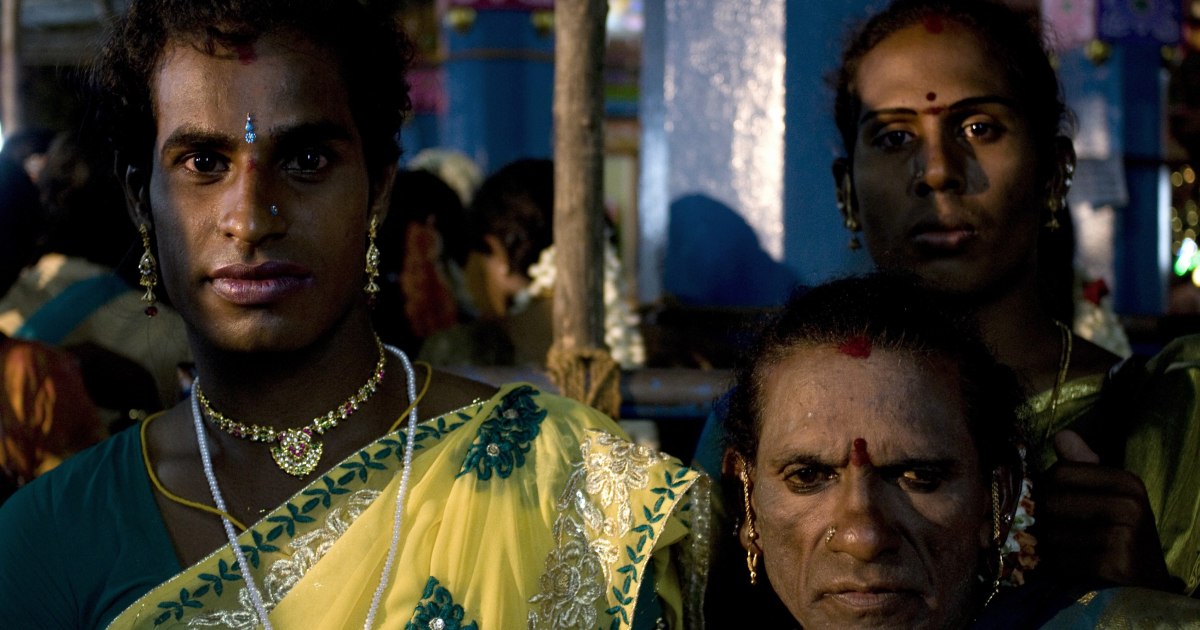Pope Emeritus Benedict XVI’s death was used by people in a self-serving way to “score points”, Pope Francis said on Sunday.
During a press conference on the papal plane returning from South Sudan, Pope Francis said he thought that his predecessor’s death was “instrumentalised by people who want to serve their own interests” by setting the pope and the pope emeritus against each other.
He said that “people who instrumentalise such a good person, so close to God I would almost say…they are people who belong to a party, not to the Church”.
Many are in the habit of making political parties out of theological positions, he emphasised. “I leave it alone. These things will fall on their own, or if they don’t fall they will move on as has happened so many times in the history of the Church.”
It is likely that Francis’ remarks may have been a response to the book written by Archbishop Georg Gänswein, Benedict XVI’s secretary, which states that Benedict was unhappy about certain moves made by Pope Francis, such as restricting the Latin Mass.
Pope Francis’ comments were made aboard the papal plane from Juba, South Sudan, to Rome, at the end of a six-day trip that also included nearly four days in the Democratic Republic of Congo.
The in-flight press conference included, for the first time, the participation of the Archbishop of Canterbury Justin Welby, and the moderator of the Church of Scotland, Iain Greenshields.
Welby and Greenshields had joined Pope Francis in South Sudan for an ecumenical pilgrimage of peace and reconciliation. The two Christian leaders responded to some, but not all, of the questions on the papal flight.
When asked about his views on homosexuality, Pope Francis noted that he has spoken on the topic multiple times during in-flight press conferences.
The pope reiterated what he said on his return flight from Brazil in 2013: “If a person with homosexual tendencies is a believer, seeks God, who am I to judge him? This is what I said on that trip.”
According to the Catholic News Agency, near the end of the nearly hour-long press conference, Pope Francis was asked if his papal ministry had become more difficult since Benedict’s death in light of growing division in the Church.
Francis explained that he was able to speak about everything with Benedict, even to change his own mind.
“I would like to say that I could speak about everything with Benedict and exchange opinions. He was always by my side, supporting me. And if he had any difficulty he would tell me and we would talk and there was no problem,” said Pope Francis.
He went on to describe a moment in which it appeared that someone may have wanted to pit Francis and the pope emeritus against each other.
Pope Francis recalled once referencing civil solidarity pact, a law in France that allows nontraditional civil unions between two people to receive certain benefits without all of the rights and responsibilities of civil marriage. Francis had suggested this type of partnership as a possible solution for homosexual couples for the purpose of “securing property”.
After Pope Francis had made these comments, “a person who thinks he is a great theologian, through a friend of Pope Benedict, went to him and made a complaint against me,” the pope said.
Benedict’s response was not to be “shocked”, the pope added, but to call together “four top theological cardinals” to explain the concept to him.
“And that’s how the story ended,” he said. “ an anecdote to see how Benedict moved when there were complaints.”
Benedict XVI, he emphasised, “was not a bitter man”.
Pope Francis visited the Democratic Republic of Congo and South Sudan Jan. 31-Feb. 5. Over the six days, he had moving meetings with local leaders, Catholics and victims of war and conflict.
The Pope also discussed forthcoming trips and said a visit to India is planned for next year.
He will also go to Marseille on 29 September and Lisbon in August for World Youth Day. In Europe, the Pope says he wants to go to the “smallest countries” pointing out his early trip to Albania.
Archbishop Welby said he wholeheartedly agreed "with every word" Pope Francis had said and would "quote the Holy Father" during General Synod, which begins this week and will be debating how far the Church can liturgically recognise same-sex unions.
The archbishop said he had a “deep sense of encouragement” following his peace pilgrimage to South Sudan with the Pope, adding that he would be happy to make future trips with the Pope if it could be of help.
(Pope Francis on the flight from Juba to Rome | CNA)
Pope Emeritus Benedict XVI’s death was used by people in a self-serving way to “score points”, Pope Francis said on Sunday.
During a press conference on the papal plane returning from South Sudan, Pope Francis said he thought that his predecessor’s death was “instrumentalised by people who want to serve their own interests” by setting the pope and the pope emeritus against each other.
He said that “people who instrumentalise such a good person, so close to God I would almost say…they are people who belong to a party, not to the Church”.
Many are in the habit of making political parties out of theological positions, he emphasised. “I leave it alone. These things will fall on their own, or if they don’t fall they will move on as has happened so many times in the history of the Church.”
It is likely that Francis’ remarks may have been a response to the book written by Archbishop Georg Gänswein, Benedict XVI’s secretary, which states that Benedict was unhappy about certain moves made by Pope Francis, <a href="https://catholicherald.co.uk/aide-says-curbs-on-the-traditional-latin-mass-broke-pope-benedicts-heart/"><strong>such as restricting the Latin Mass</strong></a>.
Pope Francis’ comments were made aboard the papal plane from Juba, South Sudan, to Rome, at the end of a six-day trip that also included nearly four days in the Democratic Republic of Congo.
The in-flight press conference included, for the first time, the participation of the Archbishop of Canterbury Justin Welby, and the moderator of the Church of Scotland, Iain Greenshields.
Welby and Greenshields had joined Pope Francis in South Sudan for an ecumenical pilgrimage of peace and reconciliation. The two Christian leaders responded to some, but not all, of the questions on the papal flight.
When asked about his views on homosexuality, Pope Francis noted that he has spoken on the topic multiple times during in-flight press conferences.
The pope reiterated what he said on his return flight from Brazil in 2013: “If a person with homosexual tendencies is a believer, seeks God, who am I to judge him? This is what I said on that trip.”
According to the Catholic News Agency, near the end of the nearly hour-long press conference, Pope Francis was asked if his papal ministry had become more difficult since Benedict’s death in light of growing division in the Church.
Francis explained that he was able to speak about everything with Benedict, even to change his own mind.
“I would like to say that I could speak about everything with Benedict and exchange opinions. He was always by my side, supporting me. And if he had any difficulty he would tell me and we would talk and there was no problem,” said Pope Francis.
He went on to describe a moment in which it appeared that someone may have wanted to pit Francis and the pope emeritus against each other.
Pope Francis recalled once referencing civil solidarity pact, a law in France that allows nontraditional civil unions between two people to receive certain benefits without all of the rights and responsibilities of civil marriage. Francis had suggested this type of partnership as a possible solution for homosexual couples for the purpose of “securing property”.
After Pope Francis had made these comments, “a person who thinks he is a great theologian, through a friend of Pope Benedict, went to him and made a complaint against me,” the pope said.
Benedict’s response was not to be “shocked”, the pope added, but to call together “four top theological cardinals” to explain the concept to him.
“And that’s how the story ended,” he said. “[This was] an anecdote to see how Benedict moved when there were complaints.”
Benedict XVI, he emphasised, “was not a bitter man”.
Pope Francis visited the Democratic Republic of Congo and South Sudan Jan. 31-Feb. 5. Over the six days, he had moving meetings with local leaders, Catholics and victims of war and conflict.
The Pope also discussed forthcoming trips and said a visit to India is planned for next year.
He will also go to Marseille on 29 September and Lisbon in August for World Youth Day. In Europe, the Pope says he wants to go to the “smallest countries” pointing out his early trip to Albania.
Archbishop Welby said he wholeheartedly agreed "with every word" Pope Francis had said and would "quote the Holy Father" during General Synod, which begins this week and will be debating how far the Church can liturgically recognise same-sex unions.
The archbishop said he had a “deep sense of encouragement” following his peace pilgrimage to South Sudan with the Pope, adding that he would be happy to make future trips with the Pope if it could be of help.
<em>(Pope Francis on the flight from Juba to Rome | CNA)</em>






